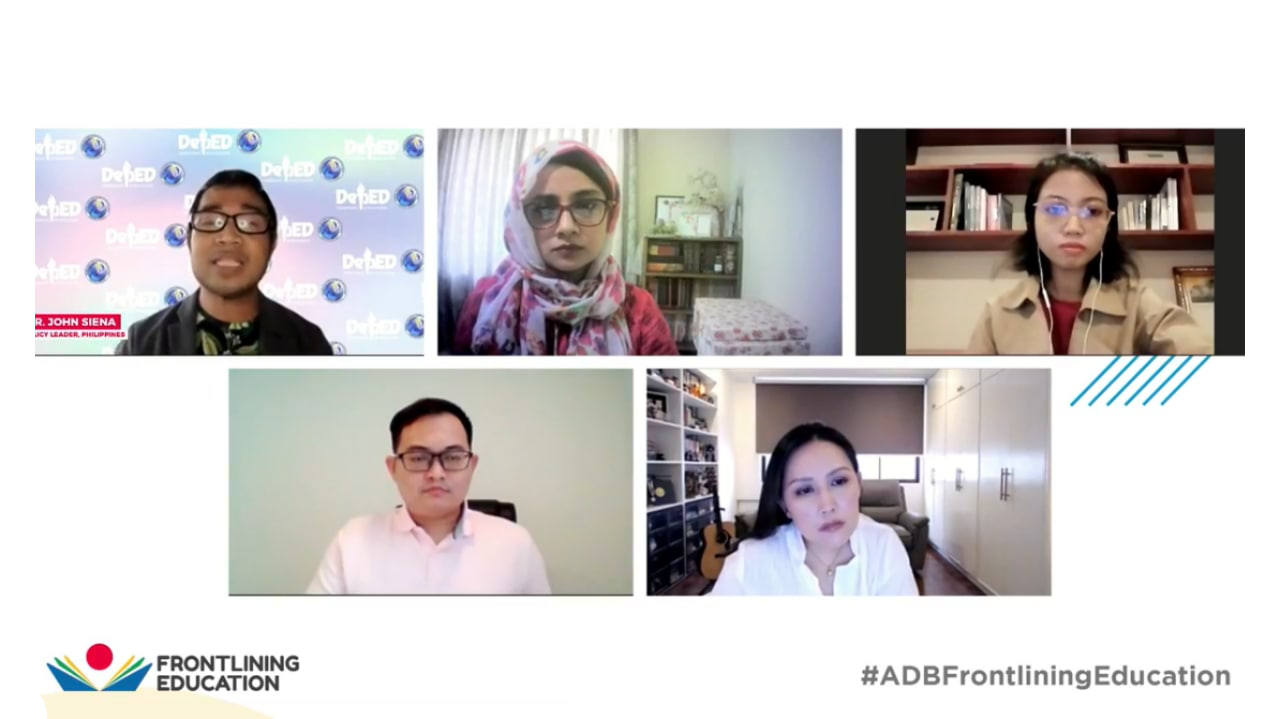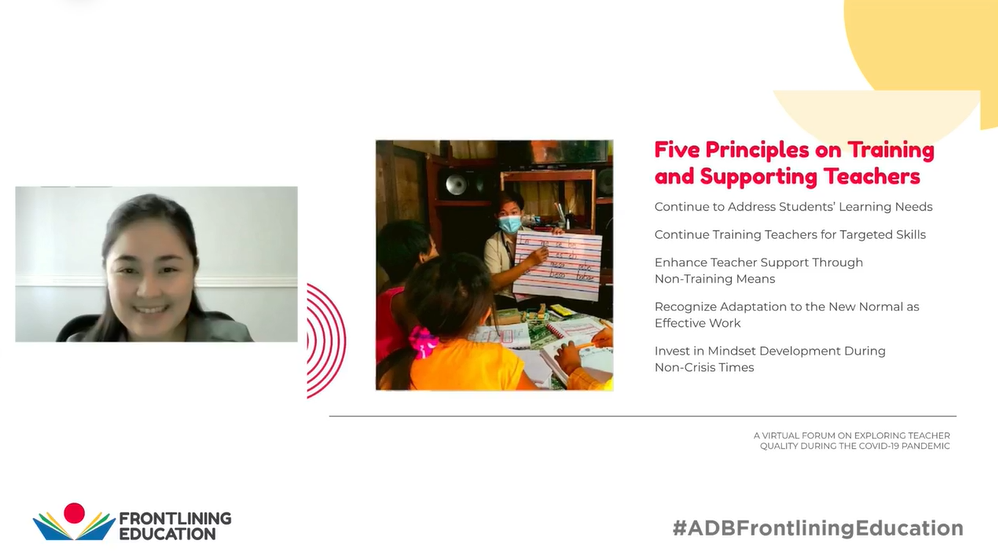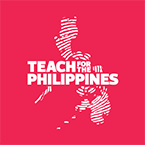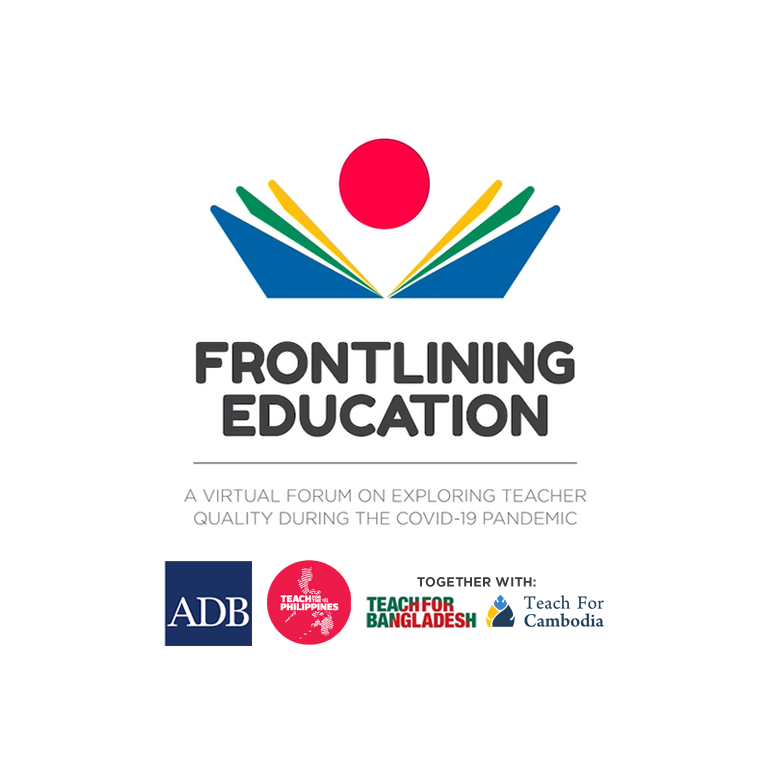More than a year into the pandemic, new challenges continue to emerge that demand a deep understanding of the realities happening on the ground. The shift from face-to-face to distance learning requires teachers to adopt new skills and adapt various methods rapidly. Now, more than ever, teachers play a critical role in nation-building not only because they significantly influence future generations, but also because they directly improve the quality of education in an ambiguous and chaotic time.
“The shift in the roles have more or less transferred to learners and parents. The role of teachers has diminished in terms of proximity with learners. This is where the importance of relationships comes in, the overarching concept of empathy comes – how do we build relationships with learners, parents, guardians, and other teachers?”, said Director John Arnold Siena of the Department of Education’s National Educators Academy of the Philippines (NEAP) as he reacted to the study’s findings on qualities of effective teachers during crisis times.
Last Saturday, June 26, Teach for the Philippines (TFP), together with Teach for Bangladesh (TFB) and Teach for Cambodia (TFC), held the virtual forum “Frontlining Education: Exploring Teacher Quality Amid the COVID-19 Pandemic” to present its study and findings on teacher quality during crisis times in Bangladesh, Cambodia, and the Philippines. With the support of the Asian Development Bank, the event served as a platform for policymakers, civil society organizations, and education stakeholders to learn more about the plight of teachers as they navigate the evolving education landscape.
The virtual forum was hosted by CNN Philippines TV presenter Angel Jacob and was moderated by TFP’s Chief Operations Officer Mavie Ungco. Key figures in education, from school leaders to direct influencers of national policy, across the three host countries were also present as guest panelists, namely: NEAP Director John Arnold Siena and Dr. Maria Cristina Robles, Principal IV of Navotas National High School from the Philippines; Deputy Director K M Enamul Hoque of Campaign for Popular Education (CAMPE) and Maliha Ahsan, Education Program Manager of the Abinta Kabir Foundation School from Bangladesh; Dr. Sopheak Song, Director of the Centre for Educational Research and Innovation of Cambodia Development Resource Institute (CDRI) and Leanghour Chheang, Vice School Director at Sompouv Poun High School from Cambodia.
“Teachers are losing their motivation, students are losing interest, and parents just don’t want to help out anymore. Everyday we are discussing what to do, but the situation is also changing everyday. These times are very uncertain and unprecedented, it’s always important to learn from teachers and other experts.”, noted Maliha Ahsan from Bangladesh as she shared her views about learning in the new normal. Recognizing the value of cross-cultural dialogue, the Frontlining Education forum sought to provide its guests and audiences the opportunity to learn from one another in order to drive conversations on education reform amid the COVID-19 pandemic.

PHOTO (from left to right, top row): NEAP Director John Siena, Abinta Kabir Education Foundation School Education Program Manager Maliha Ahsan, TFC Program Manager Sovancharya Ren; 2nd row: TFC CEO Monirath Siv, TFP Chief Operations Officer Mavie Ungco
The event focused on the three questions addressed in the study and each set of findings were presented by a Teach For Organization, which highlighted its country’s education context. Opening the discussion was TFB’s Chief of Staff Shoaib Alam, together with Program Director Maliha Fawzia, who talked about the contextual differences of education between non-crisis and crisis times. TFC’s CEO Monirath Siv, supported by Program Manager Sovancharya Ren, presented the qualities of effective teachers during crisis times. Lastly, TFP’s Chief Program Officer Adelaide Elpidama, joined by Data and Impact Assessment Manager Gabriella Montinola, shared recommendations on how to train, develop, and support teachers during these challenging times.

PHOTO: Teach for the Philippines’ Chief Program Officer Adelaide Elpidama presenting the key principles of supporting teachers resulting from the ADB study.
“Education is such a long game, the most important thing to ask is how we stay in this long game and not get distracted with a lot of challenges on the side. For us, we apply what works across the years.” shared TFC CEO Monirath Siv on adapting their program to the needs of the times.
TFC Program Manager Sovancharya Ren adds, “Reinforced with data and insights, anchored in empathy and compassion, enlightened our teachers of the situation of their students; helping them understand the situation from the other side and enabling them to customize the teaching-learning process.”
As teachers continue to face the challenges of distance learning, education stakeholders at the policy-making level as well as those working at the frontline must work together to ensure learning continuity for students.
As CAMPE Deputy Director K M Enamul Hoque said, “We need to prioritize basic issues, literacy and numeracy, and focus on skills that release the stress of teachers. I would like to emphasize how the government should think critically and holistically on how children should be supported in psychosocial aspects as well. “
“In these challenging times, sometimes changes, challenges brought about by disruptions due to COVID prepare us for something new, useful and relevant.” shared Dr. Maria Cristina Robles on understanding the changes and implications of a crisis to continuing education for learners. “What we need is the will and determination to adapt to change and then move on.”
“In these challenging times, sometimes changes, challenges brought about by disruptions due to COVID prepare us for something new, useful and relevant.” shared Dr. Maria Cristina Robles, Principal of Navotas National High School in the Philippines, on understanding the changes and implications of a crisis to continuing education for learners. “What we need is the will and determination to adapt to change and then move on.”
“When we assign such an influential and transformational role to the teacher, we should also be prepared to provide the resources and support needed to perform their roles effectively.” Shanti Jagannathan, Principal Education Specialist from the Sustainable Development and Climate Change Department of the Asian Development Bank shared in her message of support, “While teachers are lifelines to students, they also need lifelines in terms of active support. active encouragement and active incentives to perform at their best.”
While uncertainty remains in navigating the changing education landscape, there is a strong desire to support our teachers among leaders and advocates in education. Building valuable partnerships between educators and parents, principals, and public officials in order to equip teachers not only to survive in today’s realities, but to thrive in the future of learning.
“ADB is very delighted to partner with Teach for the Philippines in this collective journey of improving teacher quality for better performance of students.” Jagannathan adds, “It is a collective journey where many actors have to play a part.”
You may watch the full event here. If you want to receive a full copy of our study, “Exploring Teacher Quality Amid the COVID-19 Pandemic”, please send an email to data@teachforthephilippines.org.


